Make Money Playing Video Games: The 10 Best Games and Platforms (Beyond Roblox)
Video GamesMake Money Playing Video Games: The 10 Best Games and Platforms (Beyond Roblox)
Sam Greenspan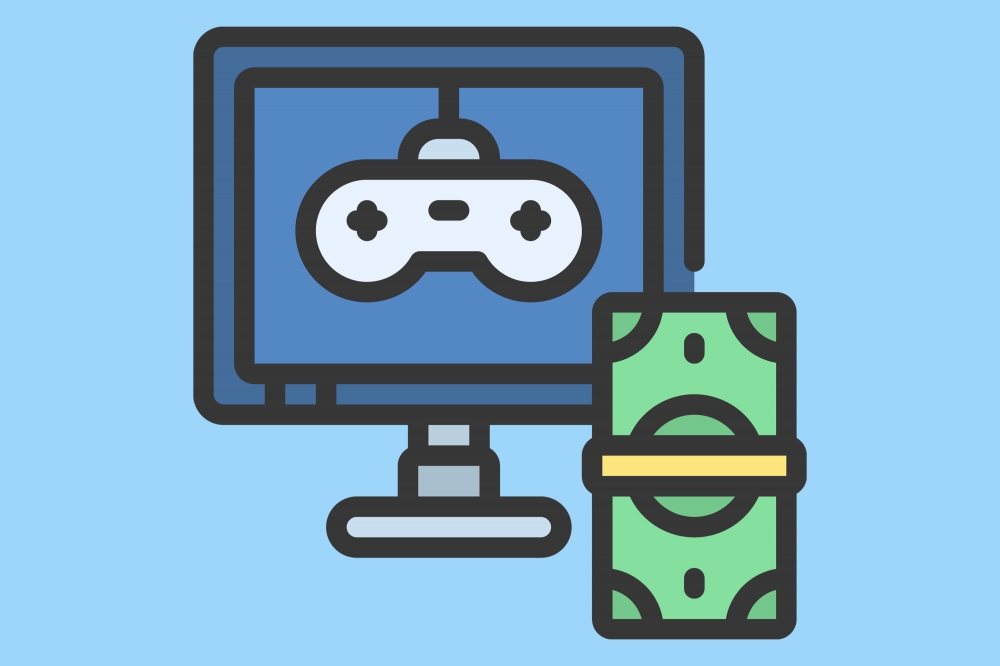
People have been making virtual money in video games for nearly half a century now. It’s only recently we’ve started realizing we could possibly make money playing video games — actual money.
Roblox is the biggest name in video games where you can earn actual money while you play — yes, you can make money with Roblox, and not just a little money. During the quarantine days of 2020, people turned to the Roblox gaming platform in droves to play, build, create, and potentially make their fortune. In fact, two-thirds of all kids ages nine to 12 played Roblox at some point in 2020 [1] — and some of them turned it into a way to bring in money. Goodbye paper routes, hello creating digital outfits to sell in a virtual marketplace.
For those who are looking to make money playing video games, though, Roblox is far from the only option. Games and gaming platforms (many of which are NFT-based) are flourishing as more and more people turn to make money online. Here are some of the top video game creator economies so you can start making real money doing something you love.
Make Money Playing Video Games: 10 Games and Platforms (Besides Roblox)
Core - “Roblox for older players”
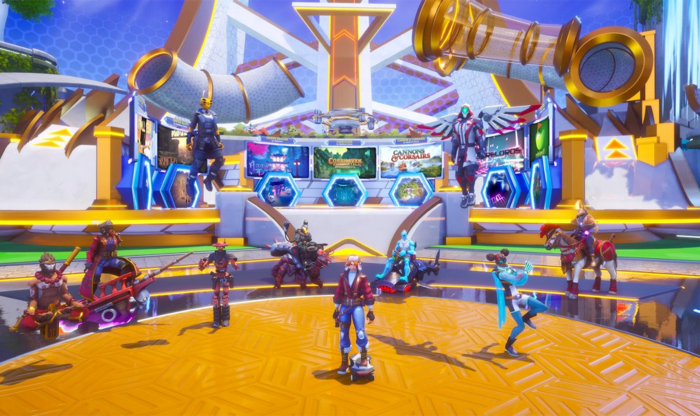
Via: Core.
Manticore’s free-to-play online game, called Core, bills itself as "Roblox for older players." Aimed at older teens and adult audiences, Core’s gaming system enables users to develop up to anywhere from single-player games to 32-player games. Using the Lua programming language and robust API, users can dive into creating games on Core with drop-down tools, premade assets, and more.
Much like it works with Roblox, as a Core creator, you can make your games free or require a premium membership fee. You’re also free to integrate economic systems in your games to maximize their earnings. Manticore splits 50% of its revenue with creators, enabling users to profit from games they create on Core [2].
If you don’t want to mess around with microtransactions, Core’s Creator Payouts Pilot Program pays game developers $3 per average daily player; in other words, if a game averages 500 daily players, the creator would get $1,500 at the end of the month.
The Sandbox - a rapidly-growing metaverse
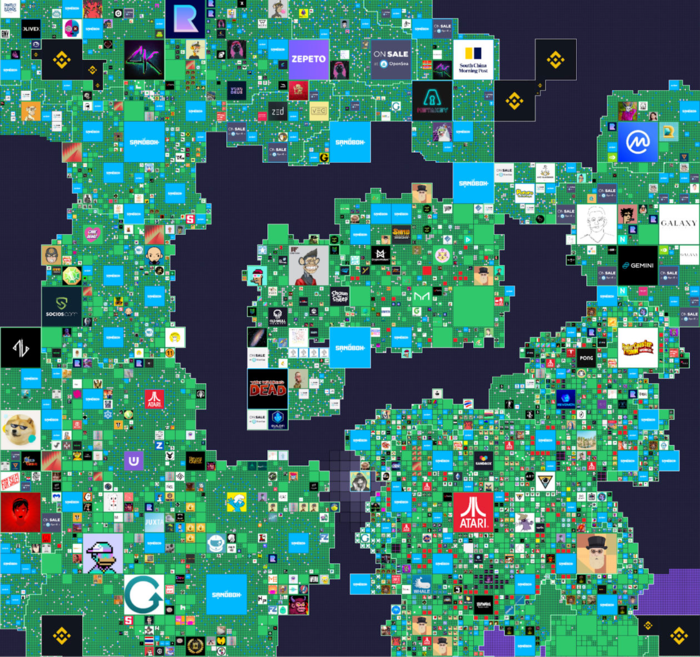
Via: The Sandbox.
The Sandbox is a metaverse where players and creators can earn money. Players can create items, mint them as NFTs, and monetize them. Unlike Roblox, The Sandbox is decentralized. That means that everything that players make within the game they own, and they can charge an in-game cryptocurrency (called the $SAND token) when they create challenges or assets.
There are three main ways to earn money on The Sandbox [3]:
Game Maker interface enables users to build games with no-code solutions, like script templates.
VoxEdit is where creators can create and design 3D models and game items.
Marketplace is where users can trade the assets they make. (There’s an ASSET token for user-generated content which can be traded in the game.)
Some users also invest in specific NFT to earn money on the game. LAND tokens, for example, are NFT-based digital real estate that players can use to host experiences or even rent ad space. Plus, because there is a limited amount of LAND in existence, they are a premium asset that can be sold for quite a bit of money depending on how coveted the area is.
Blankos Block Party - play-to-earn NFT game featuring collabs with major brands
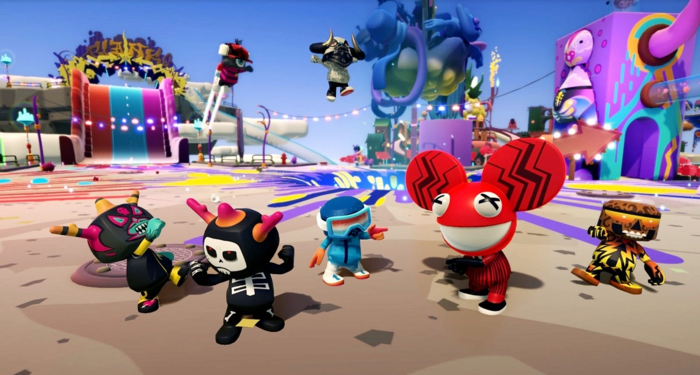
Via: Mythical Games.
Mythical Games hadn’t planned on creating a complete game when they made Blankos Block Party. They initially created it as a tech demo to demonstrate the popularity of the NFT marketplace to possible corporate partners. However, it was so popular that they ended up making it into an entire game.
Blankos Block Party is an NFT-driven game built on the principles of scarcity, ownership, and accessibility. In it, users can create their own world without coding skills. Players can also collect and sell NFTs of objects and characters made by major brands (including Burberry and Deadmau5) and other developers.
Each item gives the player a different ability, such as flight or invisibility. Players can make money, then, by buying and trading these assets.
In addition, Blankos Block Party has play-to-earn components. The game gives players a free “Party Pass,” which includes an NFT, to enter the game. Players can then earn more NFTs as they complete different challenges. Players can sell these NFTs in the Mythical Marketplace.
Rec Room - VR and platform gaming metaverse
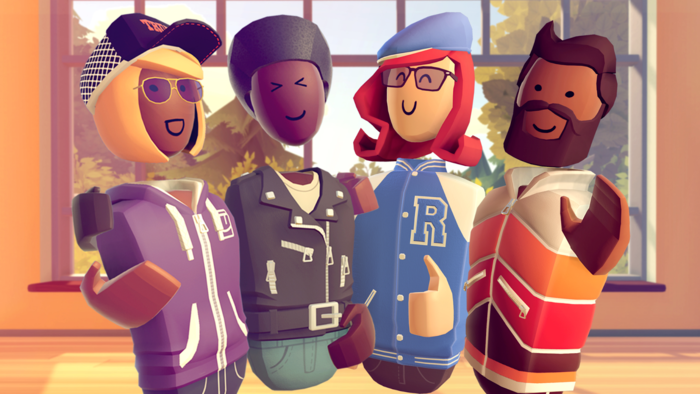
Via: Rec Room.
Rec Room has the potential to become one of the biggest gaming metaverses across multiple platforms. While it started as a VR game (and is still playable as a VR game on Oculus), it has since expanded to Xbox, PlayStation, PC, and iOS. And with 25 million users, there are plenty of opportunities to earn money on the platform.
Players can earn money by:
Playing Rec Room original games
Creating games
Selling inventions in Rec Room Plus, such as weapons, furniture, outfits, and decorative objects
Participating in contests hosted by Rec Room
With Rec Room’s infrastructure, game creators don’t need to know coding or 3D modeling (or the nuances of a proprietary game engine). The tools to build games are inside the app, and players can even create with their friends in real-time.
Not only is building easy, but it is also a place to potentially make money. With Rec Room’s Creator Compensation program, creators can earn tokens that they can then exchange for real money. For every 250,000 coins you make, you can earn $100, plus potential bonuses up to $500.
CREY - community-oriented gaming hub
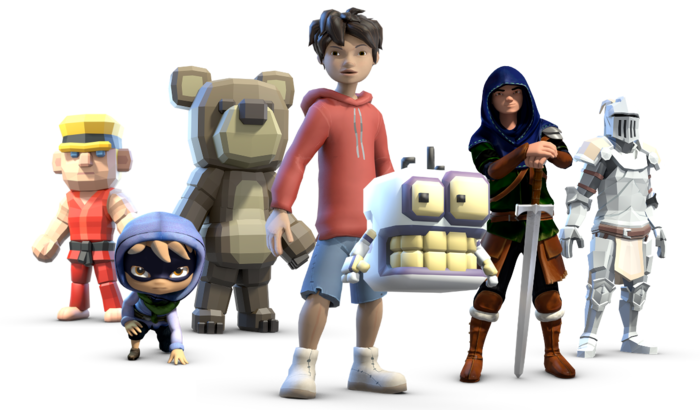
Via: CREY.
Like many of the gaming platforms we have mentioned already, CREY is trying to break down barriers so nearly everyone can be a game creator. It allows users to create their own gaming world without coding knowledge or other skills.
CREY is a community-oriented platform, where users can customize their own social hubs to hang out with other users and access games. (They even currently have an educational program in place in about 30 Denmark and U.S. schools where students can create their own virtual world as teams.)
Players can earn money on the platform by building assets and trading coins for real currency. In the future, CREY will be offering a subscription with a new avatar system and a monetization model for content creators, according to CREY CEO Fabien Rossini [4]. That way, creators can earn direct monetary compensation versus trading in coins.
Playerstate - monetize fan creations for popular video games
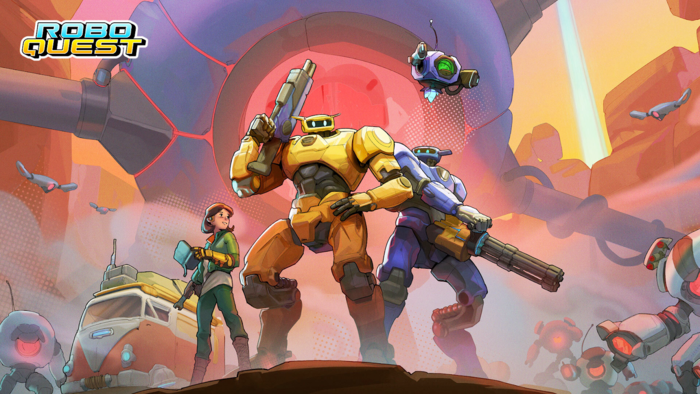
Via: Playerstate.
Fans of different video games have been creating user-generated content around their favorite games, from memes and GIFs to game guides to fan art to videos to mods. Playerstate enables gamers to actually monetize these passion projects — and also possibly catch the eye of someone in the video game industry.
Playerstate functions much like a social network. Users share their portfolios and can also follow others to share content, join groups, and view what others post.
There are several rewards users can earn (real money is one of them, but there are others along the way as well).
Active users are rewarded with experience points for being on the platform. They can use these to level up, access revenue-sharing opportunities, and unlock new features.
Project owners can offer rewards which is another opportunity for creators to earn. These rewards can include in-game currency, skins, or even direct cash. Users can also create community challenges for smaller projects, such as coming up with a new character or level that creators draw or sketch.
Playerstate’s goal is ultimately to develop their platform as a place where users can come together to both collaborate and learn the skills they need to create their own games.
Satoshi’s Games - play-to-earn Bitcoin games
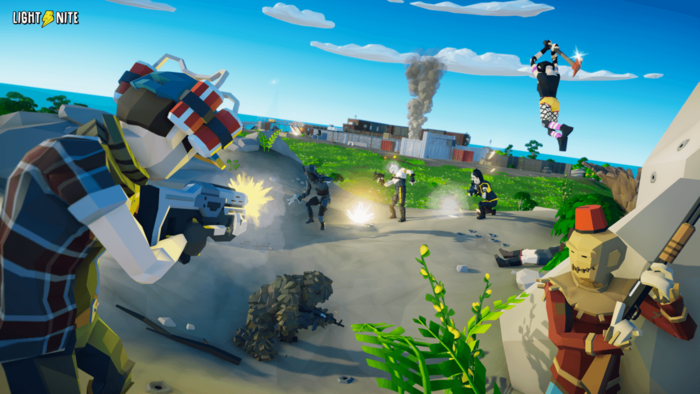
Via: Satoshi’s Games.
Satoshi’s Games is a platform that rewards users with Bitcoin for playing games. It is the first gaming system based on Bitcoin and features games that are both free-to-play and paid. The signature play-to-earn game is Lightnite, a multiplayer battle royale (think Fortnite-meets-Bitcoin); however, with the Steam-esque Elixir app, players can play around a half-dozen games (and counting) with cryptocurrency rewards.
In addition to earning Bitcoin by playing, users can also sell assets on Elixir Marketplace and will soon be able to publish games on the platform.
Axie Infinity - the most popular NFT game on the market
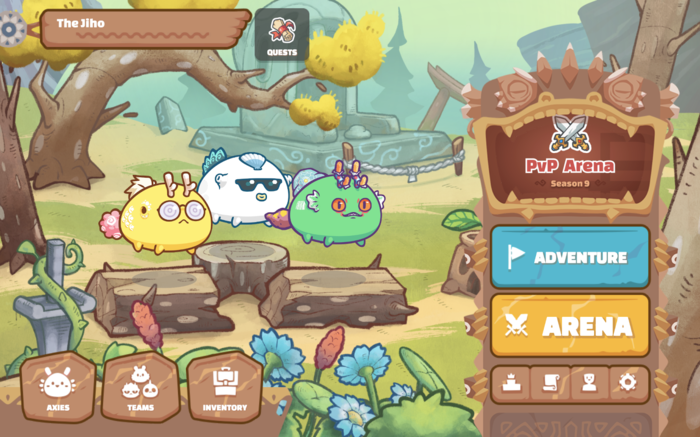
Via: Axie Infinity.
Axie Infinity is the most popular NFT game currently on the market [5]. Created by SkyMavis, this Ethereum-based collectible game has been getting a lot of press lately because of players’ ability to make money on the platform. The game is so lucrative that in 2020, players in countries including Colombia and the Philippines started to utilize Axie Infinity as their source of income.
There are two currencies on the platform: Axie Infinity Shards (AXS) and Smooth Love Potions (SLP).
The main way players earn money in the game are:
Breeding and trading Axies (the game's battle creatures)
Investing in Lunacia Land
Trading AXS and SLP
Starting a scholarship, where players loan Axies to new users in exchange for a set amount of money every day.
Farming and selling SLP
To expand on that last one, farming SLP is the top play-to-earn technique in the game because SLP are required to breed Axies. Ways to get more SLP include:
Battling players in the Arena
Fighting monsters in Adventure mode
Completing daily quests
You can make around $10 to $15 playing Axie Infinity for a few hours a day. For lower-income countries, like the Philippines, this is almost double the amount of minimum-wage work, which is why it is so popular there.
Animal Crossing: New Horizons - a Nintendo Switch game with real-world earning possibilities
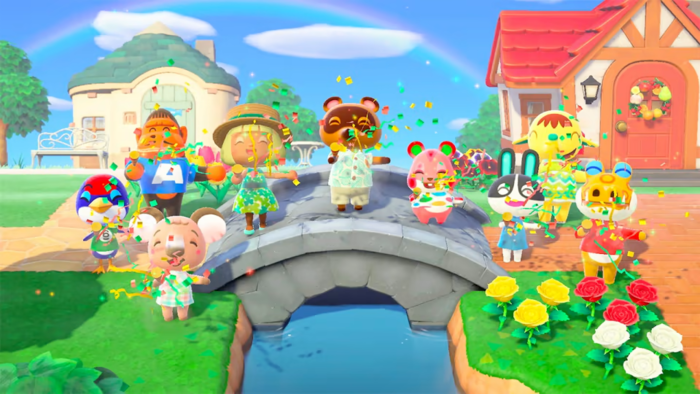
Via: Nintendo.
Yes, believe it or not, there’s even a mainstream Nintendo Switch game where you can make real money.
Animal Crossing: New Horizons exploded in popularity during the pandemic, as it presented a happy and calm world for many users. It appeals to people of all ages and became the second best-selling Nintendo Switch game ever.
Animal Crossing: New Horizons isn’t NFT- or blockchain-based, so players who earn money do so by offering up their services on Twitter, eBay, WeChat, and other online platforms.
Players can make money by doing various skilled tasks: offering lawn services like weeding, watering, and shaking trees; in-game photographers taking pictures of player islands; and more. There are also players that sell goods and perks on the internet for players to buy.
Typically, these sellers ask for donations and tips rather than a set pay, as in-game sales are technically against the Animal Crossing terms of service (at least in the Japanese version of the game; the North American version has no such prohibition) [6].
Star Atlas - earn to control the laws of the universe (and the real-life direction of the game)

Via: Star Atlas.
A relative newcomer in the NFT gaming world, Star Atlas is a space exploration strategy game that rewards players for delving into their virtual world and selling assets. Players venture out into the universe to find and mine raw assets that they can then trade or sell.
Star Atlas works on two separate currencies: ATLAS is the in-game currency which players can earn through activities like mining for ore or selling assets. Players can earn real money by selling ATLAS, lending it to other players, or by selling original content or in-game services in the Star Atlas Galactic Marketplace.
POLIS is a dual-function governance token that gives the holder say over the laws inside the game as well as the direction of the game in the real world. Down the road, as the game’s decision making transitions to a decentralized structure, POLIS holders will even potentially be able to outvote the creators of the game.
Parallel - NFT-based collectable card game
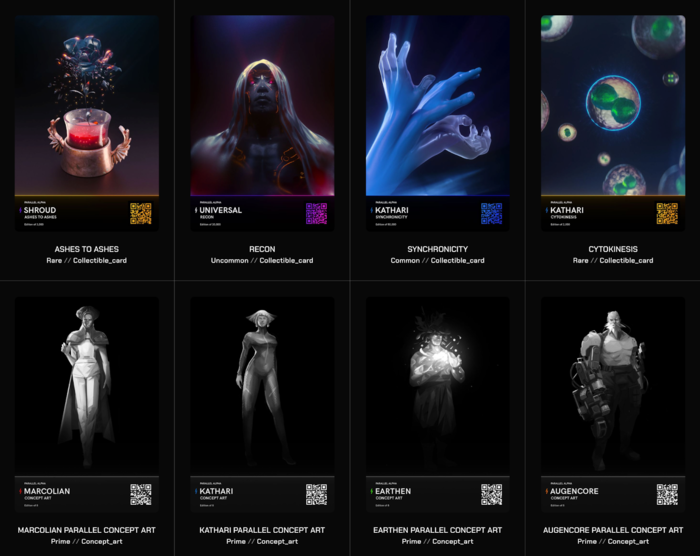
Via: Parallel.
Parallel is an NFT collectible card game that launched in March 2021 hit a $500 million valuation in around half a year [7]. Parallel is a science fiction genre NFT card game that centers around a global disaster. In the game, players must collect a set of cards to make up a playable deck for one of five Parallels.
The Parallel NFT cards can be lucrative as enthusiastic collectors trade and sell their cards to the top buyer. But, of course, it’s not just a money-making venture: Parallel is both a game for those who want to make money and those who are looking for a fun online card game to play with their friends.
Make Money Playing Video Games: Summary and Conclusions
It really changes the calculus on how much time you spend playing video games if you can make real money playing video games. But as both the video game creator economy and world of NFTs continue to grow, new opportunities are arising to play video games that are fun and lucrative.
Core is a gaming platform in the same vein as Roblox, aiming to serve older players looking to create and sell games.
The Sandbox is a metaverse that’s growing in popularity which gives players multiple ways to make money through UGC creation and cryptocurrency tokens.
Blankos Block Party is a play-to-earn NFT-based game that works with major brands to provide a unique in-game experience.
Rec Room is a metaverse available in VR and on most popular gaming platforms that gives players no-code ways to create and earn.
CREY is a community-focused gaming hub that encourages collaborative game development.
Playerstate is a platform where players can monetize the fan creations they’ve been making for free, from memes to mods.
Satoshi’s Games is a Bitcoin-driven play-to-earn gaming platform with a growing marketplace.
Axie Infinity is the most popular NFT-based game, giving players plenty of opportunities to play to earn real money.
Animal Crossing: New Horizons is a Nintendo Switch game that’s spawned a secondary market for goods and services.
Star Atlas is an ambitious new NFT game with interesting use of a governance token for both in-game and out-of-game decision making.
Parallel is an NFT card collecting game allowing players to make money by trading and selling to other players building their decks.
External references
